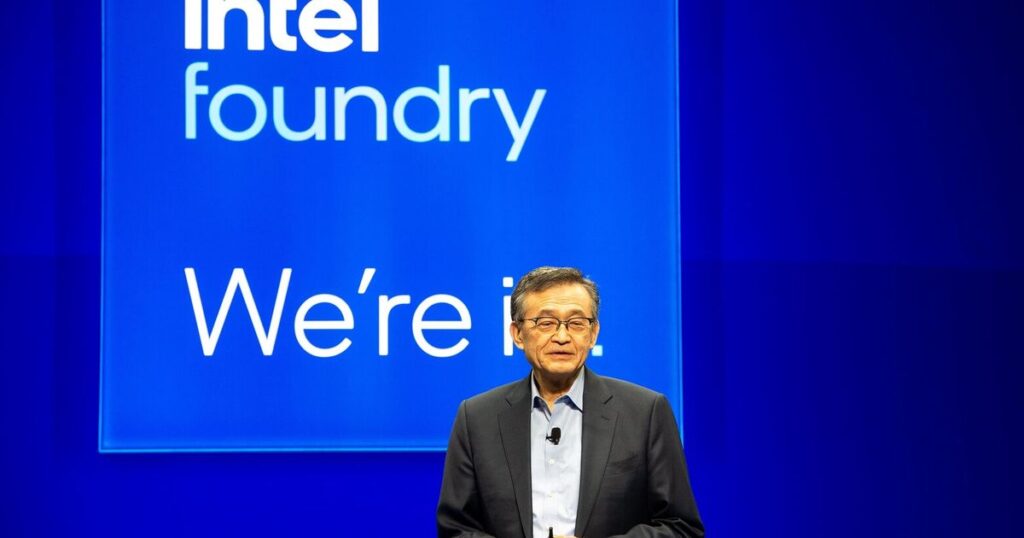Intel, the chip pioneer now partly owned by the U.S. government, told investors that 2026 will be a critical year for its manufacturing technology and should show whether it’s ready to move ahead with a more advanced process.
The company won’t know until then whether it’s ready to green-light a method called 14A, Chief Financial Officer Dave Zinsner said at a technology conference in New York City on Thursday. Achieving that milestone has long been touted as a key piece of Intel’s turnaround plan.
“Sometime in ’26, we’ll have a good feel for how things are going,” Zinsner said at Citi’s 2025 Global TMT Conference.
Zinsner reiterated a stance that Intel will only build 14A manufacturing capacity if it gets commitments from external customers wanting to use it. That position is financial common sense, Zinsner said.
Still, when Intel CEO Lip-Bu Tan first outlined this approach in July, it alarmed analysts and investors. Not moving forward with 14A would suggest that Intel is giving up on its bid to be a technological leader again.
The concerns led to politicians looking more closely at the company and doubting Tan’s loyalty to the U.S. Within the span of days, U.S. President Donald Trump called for his resignation — over the executive’s past ties to China — and then forged an investment deal with Intel. The U.S. government has taken a roughly 10% stake in the company in return for $8.9 billion.
When questioned, Zinsner said Intel was open to others taking a stake in its manufacturing operations. But the agreement with the Trump administration means the company will have to hang on to a majority position in that business — and outside investment was unlikely to come in the near term.
“So it’s not inconceivable that we do that,” he said. “I think the likelihood is that it won’t happen anytime soon because it’s not quite investable yet. But at some point down the road, I could see that happening.”
The government’s position is a passive holding, and it will vote with whatever the board recommends. That’s contingent on Intel retaining the commitment and ownership of its manufacturing operations, Zinsner said.

